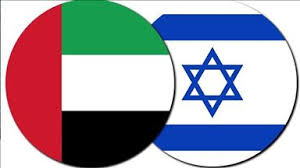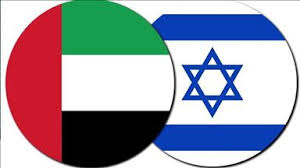
There is now increased expectation of an influx of funding in ‘Silicon Wadi’, Israel’s own Silicon Valley, following the establishment of formal diplomatic ties between Israel and the United Arab Emirates.
“The UAE has excess amounts of money, but not enough places to invest it in the Middle East,” said Eldad Tamir, founder and CEO of the Tamir Fishman investment house, one of Israel’s top investment funds.
“The high tech sector here is thirsty for money and having new investors from the UAE will help us diversify a bit from our usual Chinese and American investor.”
But some investment bankers and fund managers in the UAE, the Middle East’s financial hub are also of the opinion that capital inflows could be hampered by deep-seated animosity towards Israel among some investors of the gulf region.
“The emotional part is definitely a roller-coaster ride and will take a substantial time to overcome,” said a report on the issue quoting a UAE-based capital markets investor who did not want to be named.
Typically, when investing in global or regional share indexes investors form the UAE typically remove Israel. But according to Citi Israel head Neil Corney, with agreement to normalize diplomatic ties between the two countries earlier this month, that should change.
“If asset managers were following some kind of global index, Israel would get its relevant or relative weight for those investments,” Corney told the news agency Reuters.
But reports also quoted fund managers saying that if some investors of the regional investment funds that are expected to now invest in Israel and many of which are headquartered in the UAE, come from Arab countries that don’t recognize the country, such investment might not get the green light to invest in Israel.
The official recognition of Israel by the UAE and the establishment of formal diplomatic ties between the two countries have stirred dismay in parts of the Middle East along with a cautious welcome being prompted from some of the UAE’s Gulf allies. UAE is the only country after Egypt and Jordan that have officially recognized Israel.
Israel can be an attractive investment alternative for the oil-rich conglomeration of city-states of the UAE as the novel coronavirus has severely hit the real estate sector and UAE’s economy while Israel is strongly tech focused.
“It’s more likely you are going to see UAE money investing in Israeli technology more than anything else,” said Corney. “I’m sure that some Israeli companies would look to try to attract investment as well from the UAE, particularly in the energy sector,” he said. “UAE-Israeli joint ventures would be a good fit.”
About 36% of the Israeli stock market is comprised of the healthcare and information technology sectors – both of which have boomed during the novel coronavirus pandemic.
And while there has been a 32 per cent rise in the Tel Aviv Technology index so far this year, Dubai’s benchmark index is down almost 18% while that of Abu Dhabi is down by almost 11%.
So Israel is definitely a much sager bet currently for investors of UAE.
(Source:www.financialtimes.com)
“The UAE has excess amounts of money, but not enough places to invest it in the Middle East,” said Eldad Tamir, founder and CEO of the Tamir Fishman investment house, one of Israel’s top investment funds.
“The high tech sector here is thirsty for money and having new investors from the UAE will help us diversify a bit from our usual Chinese and American investor.”
But some investment bankers and fund managers in the UAE, the Middle East’s financial hub are also of the opinion that capital inflows could be hampered by deep-seated animosity towards Israel among some investors of the gulf region.
“The emotional part is definitely a roller-coaster ride and will take a substantial time to overcome,” said a report on the issue quoting a UAE-based capital markets investor who did not want to be named.
Typically, when investing in global or regional share indexes investors form the UAE typically remove Israel. But according to Citi Israel head Neil Corney, with agreement to normalize diplomatic ties between the two countries earlier this month, that should change.
“If asset managers were following some kind of global index, Israel would get its relevant or relative weight for those investments,” Corney told the news agency Reuters.
But reports also quoted fund managers saying that if some investors of the regional investment funds that are expected to now invest in Israel and many of which are headquartered in the UAE, come from Arab countries that don’t recognize the country, such investment might not get the green light to invest in Israel.
The official recognition of Israel by the UAE and the establishment of formal diplomatic ties between the two countries have stirred dismay in parts of the Middle East along with a cautious welcome being prompted from some of the UAE’s Gulf allies. UAE is the only country after Egypt and Jordan that have officially recognized Israel.
Israel can be an attractive investment alternative for the oil-rich conglomeration of city-states of the UAE as the novel coronavirus has severely hit the real estate sector and UAE’s economy while Israel is strongly tech focused.
“It’s more likely you are going to see UAE money investing in Israeli technology more than anything else,” said Corney. “I’m sure that some Israeli companies would look to try to attract investment as well from the UAE, particularly in the energy sector,” he said. “UAE-Israeli joint ventures would be a good fit.”
About 36% of the Israeli stock market is comprised of the healthcare and information technology sectors – both of which have boomed during the novel coronavirus pandemic.
And while there has been a 32 per cent rise in the Tel Aviv Technology index so far this year, Dubai’s benchmark index is down almost 18% while that of Abu Dhabi is down by almost 11%.
So Israel is definitely a much sager bet currently for investors of UAE.
(Source:www.financialtimes.com)





